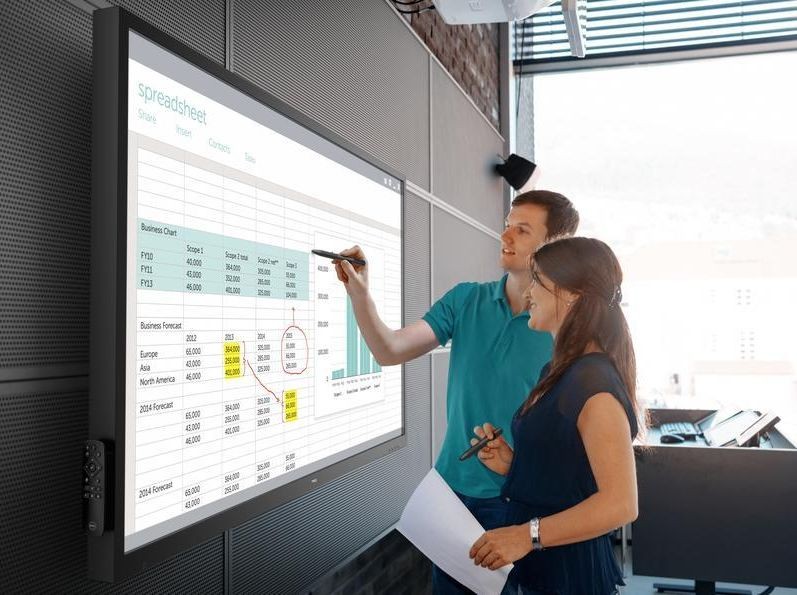Computers using touch screens were launched onto the business and consumer market in 2009.
Yet, they are only now starting to really gain in popularity thanks to the large amounts of other technology which also uses touch screens. Those who use smartphones and tablet computers find it difficult and cumbersome to switch back to using a mouse and keyboard for every manoeuvre. Even Microsoft’s Windows 8 has been designed with the touch screen PC in mind, and its overall appearance resembles more that of Windows smartphones and tablets than previous platforms have.
So why should your firm consider switching to a touch screen PC? Well, it depends on what your business does. For those working in innovative, creative or technological sectors, using touch screen technology demonstrates that you’re keeping with the times. Touch screen monitors also appeal to the younger generation, who spend a large amount of their time already using touch screen technology and so understand the benefits and how much more efficient working with one can be. It is quicker to touch an icon than it is to use a mouse to navigate to it and click on it. Most office touch screens are used with the combination of a keyboard (and mouse), but saving just a few seconds opening and closing programs throughout the day can make workers much more productive.
From a health point of view, a touch screen monitor requires a different series of movements and physical posture than working with a standard PC or laptop. Using a wider range of movements and changing posture gives less chance for repetitive strain injury or back and neck problems to occur. Workstations will still need to be assessed, however, to ensure that the touch screen is placed in the correct position and doesn’t add to problems.
